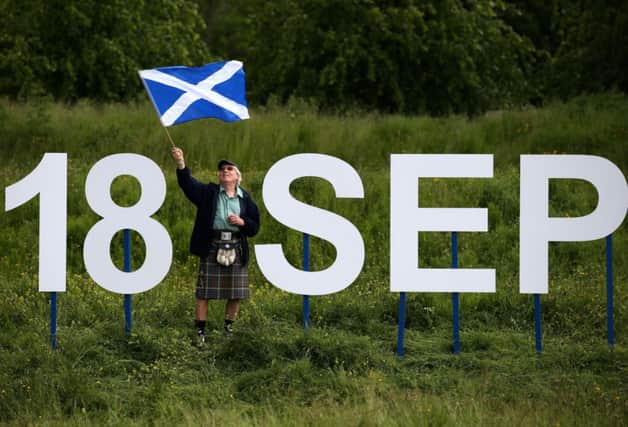Leaders: Trolls harm our national conversation


In dealing with this most regrettable – and often rather depressing – aspect of the political debate we are having about this country’s future, we must try to strike a difficult balance.
On the one hand we must not hesitate to condemn those whose language is unacceptable, and we must constantly try to encourage mutual respect in our national dialogue.
Advertisement
Hide AdAdvertisement
Hide AdBut at the same time we must try not to allow the policing of the debate to distract us from the debate itself. Our discussion is too important to be dominated by the activities of a tiny minority of crass, incontinent idiots.
These people are not a new phenomenon. They have always existed. But their comments were once reserved for the locker room, or the pub, or a sniggering huddle at the watercooler. Their views were only heard in the vicinity of the bridges under which these trolls used to hide.
Now, in an age of social media, they are out in the open for all to survey.
The most important response we can have to these people is to rise above their grubby vindictiveness, because our national conversation is better than that.
It should go without saying, but it plainly does not, so let us say it again. Each side in this referendum debate needs to conduct itself in a spirit of respect for the other side, recognising opponents’ right to hold and express a different view.
Anyone with an opinion in this debate should feel free to stand up and say their piece without being subjected to abuse, slurs and personal attacks designed to undermine their right to hold and express that view.
Which brings us to Campbell Gunn, a former political journalist who is now a special adviser to First Minister Alex Salmond.
Special advisers fulfil a hybrid function – part political animal, part public servant – and they operate under strict rules. In their code of conduct they are specifically forbidden from engaging in “personal attacks”.
Advertisement
Hide AdAdvertisement
Hide AdAnd yet there can be little doubt that Mr Gunn this week attempted to discredit someone whose only crime was to set out a view from the other side of the referendum debate.
In seeking to do that, Mr Gunn is guilty of a serious error of judgment.
The First Minister yesterday instructed Mr Gunn to apologise, but if Mr Salmond thinks this is sufficient to draw a line under the matter he is mistaken.
The fact is that Mr Gunn tried to undermine someone who had chosen to stand up in the referendum debate to express a view. Is it the Scottish Government’s business to do this? No, it is not.
To honour the spirit of respectful debate that must be the watchword of this campaign; Campbell Gunn has to go.
Mission in Iraq was a failure
IRAQ is falling apart, and the UK must hold itself substantially responsible for the chaos into which this benighted country has descended.
It is a bitter truth that the legacy of the US/UK-led military action that ousted Saddam has been gruesomely bloody, with each occasional moment of order and calm simply being the overture to another bout of carnage.
Whether the 2003 military intervention can now be justly claimed as any kind of success is questionable. What it has ultimately left is a divided country, riven with sectarian and racial hatreds, at war with itself. Perhaps a divided country should have been the outcome of the US/UK invasion and occupation. Perhaps the degree of autonomy granted to the Kurds in the north of the country should have been replicated elsewhere to try to create areas where the predominant communities could control their own affairs, with protection for minorities.
Advertisement
Hide AdAdvertisement
Hide AdBut to start on “what ifs” in Iraq would be to begin a long and ultimately futile process.
What we have now in Iraq is a breakdown in government rule, with the soldiers and policemen who abandoned their posts in Mosul this week not having sufficient confidence in the rule of law it was their duty to uphold.
And this, in no small part, is our fault, because, regardless of whether or not one agreed with the reasons we were there, we had a duty to leave the country in a secure and sustainable state. We clearly did not. We left as a soon as it was politically expedient to do so.
Now we have the clearest possible evidence that our mission there – in which many of our own soldiers and many innocent civilians died – was a failure.